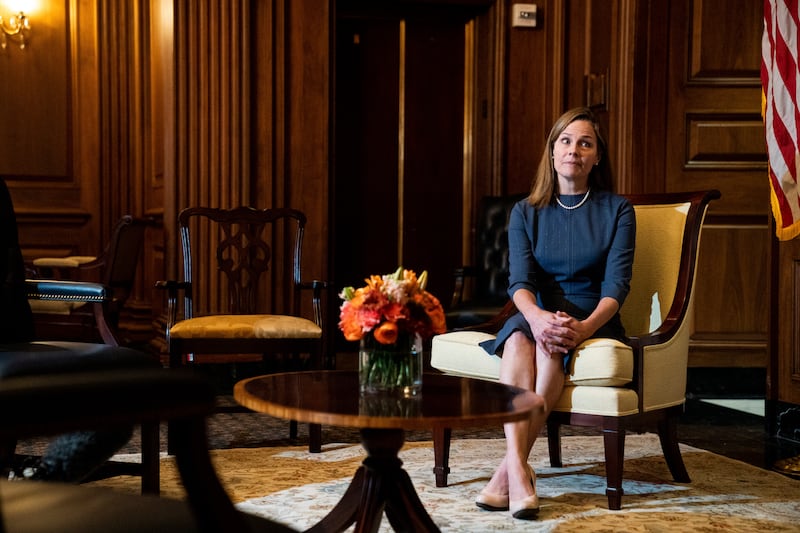The timing and political implications of appointing Amy Coney Barrett to fill the Supreme Court seat left vacant by Ruth Bader Ginsburg’s death is leading lawmakers to ask the wrong questions.
Without much room to criticize Barrett’s qualifications — even her ideological opposites maintain that her legal prowess and experience should put her on the bench — the president’s opponents are forced to explore other potentially ruinous avenues. Preeminent among them is her faith.
Already Barrett’s Catholic beliefs have been the butt of jokes from national commentators, which not only reeks of religious intolerance but comes across as a form of discrimination for political expediency. Why, for instance, is presidential candidate Joe Biden’s Catholicism left unchallenged?
And for religious conservatives, it’s hard to forget Sen. Dianne Feinstein’s comments just three years ago when Barrett was being confirmed to the U.S. Court of Appeals. “The dogma lives loudly within you,” the California Democrat said at the time, commenting on Barrett’s beliefs.
Some senators will likely revive that sentiment during Barrett’s forthcoming confirmation hearing. But asking whether her faith will influence her judicial decisions is the wrong question. It hints at a religious test for office, which the Constitution specifically forbids, and it’s a query that neglects the “how” of the judicial decision-making process.
Of course Barrett’s faith will influence her thought process, just as an agnostic’s lack of religiosity influences his or her’s. What’s more relevant for interpreting the laws of the land is understanding the logical mechanisms by which a judge reaches her conclusions.
Even Noah Feldman, a Harvard law professor who testified against President Donald Trump during the House impeachment hearing, agrees. Writing for Bloomberg, he offered this rebuttal to the charges levied against her beliefs:
“Barrett is also a profoundly conservative thinker and a deeply committed Catholic. What of it? Constitutional interpretation draws on the full resources of the human mind. These beliefs should not be treated as disqualifying.”
In fact, her beliefs highlight the essence of America’s judicial heritage: Wouldn’t the country be better served by someone with principles rather than a rudderless character? Shouldn’t the country expect a judge to rule with conviction rather than tepid opinions?
Feldman concurs, “... The social purpose of the Supreme Court is best served when justices on all sides of the issues make the strongest possible arguments, and do so in a way that facilitates debate and conversation.”
The confirmation hearing, then, should be an opportunity to explore Barrett’s character and determine if she has the temperament, acuity and wisdom to expound on the nation’s laws and deliberate with the country’s finest legal minds. It’s a chance to prod her on the methods by which she interprets the Constitution. It’s not a forum to belittle the sources from which she derives meaning in her daily life.
The nation is at its best when its people can bring their whole selves with them wherever they go and in whatever endeavor they undertake. The Senate should not chip away at that value.

